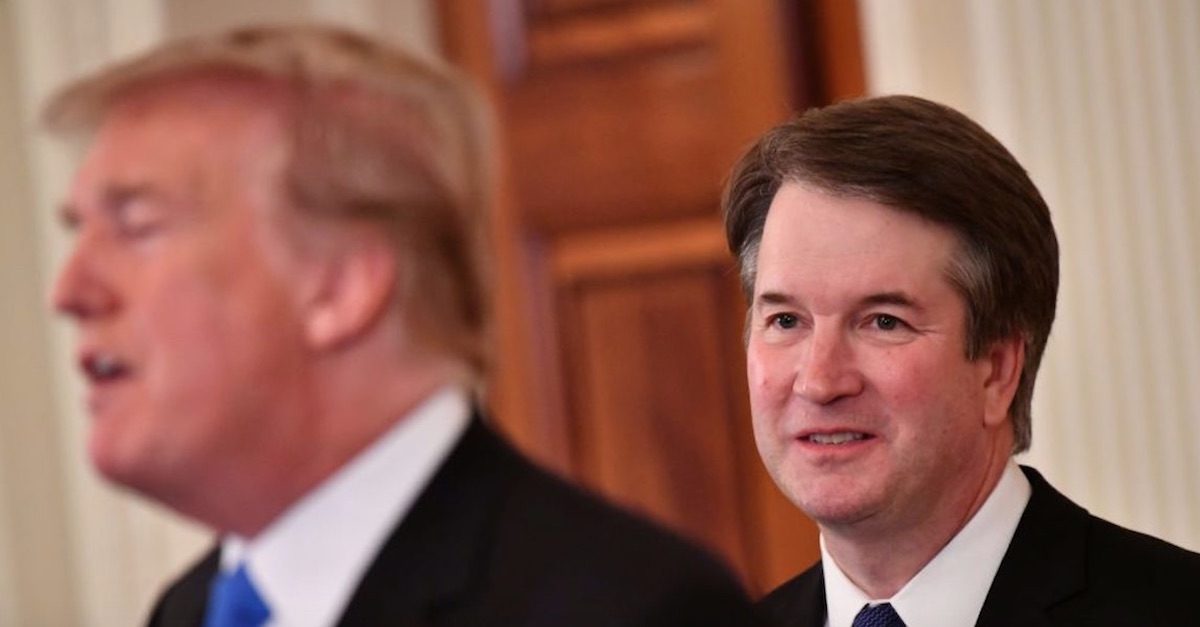
A Donald Trump-appointed federal judge in Pennsylvania on Saturday dismissed a lawsuit filed by the president’s re-election campaign which sought to prevent Secretary of State Kathy Boockvar (D) from implementing changes aimed at increasing access to mail-in voting.
In a lengthy 138-page order, U.S. District Judge J. Nicholas Ranjan, whom Trump appointed to the bench last year, reasoned that the campaign’s theory of harm was too speculative to meet the standing requirements under Article III necessary to pursue its claim.
“Federal courts adjudicate cases and controversies, where a plaintiff’s injury is concrete and particularized. Here, however, Plaintiffs have not presented a concrete injury to warrant federal-court review,” Ranjan wrote.
The president’s re-election campaign filed the lawsuit in June. The Republican National Committee (RNC), three members of Congress from Pennsylvania, and two Republican voters later joined the suit. The complaint asked the court to require guards at all ballot drop-boxes, to reinstate signature comparisons for mail-in ballots, and loosen restrictions on who can become designated poll watchers.
The complaint alleged that the state’s expanded access to mail-in voting, enacted last year, “exponentially enhanced the threat that fraudulent or otherwise ineligible ballots will be cast and counted in the forthcoming general election.” It further asserted that the allegedly heightened risk of voter fraud risked “diluting” the weight of ballots cast lawfully.
“The problem with this theory of harm is that it is speculative, and thus Plaintiffs’ injury is not ‘concrete’—a critical element to have standing in federal court. While Plaintiffs may not need to prove actual voter fraud, they must at least prove that such fraud is “certainly impending.” They haven’t met that burden,” the order stated
Ranjan also took his analysis a step further, saying that even if he were to assume that the campaign’s assertions provided proper standing, the lawsuit still fails on the merits.
“Plaintiffs essentially ask this Court to second-guess the judgment of the Pennsylvania General Assembly and election officials, who are experts in creating and implementing an election plan,” he wrote.
“Perhaps Plaintiffs are right that guards should be placed near drop boxes, signature-analysis experts should examine every mail-in ballot, poll watchers should be able to man any poll regardless of location, and other security improvements should be made. But the job of an unelected federal judge isn’t to suggest election improvements, especially when those improvements contradict the reasoned judgment of democratically elected officials.”
Ranjan supported his reasoning by citing to last week’s concurring opinion from Justice Brett Kavanaugh in Andino v. Middleton. In that case, the Supreme Court reinstated a South Carolina law requiring voters to have a witness sign all mail-in ballots after a lower court had struck down the mandate in May.
Kavanaugh wrote that “a State legislature’s decision either to keep or to make changes to election rules to address COVID–19 ordinarily ‘should not be subject to second-guessing by an unelected federal judiciary,’ which lacks the background, competence, and expertise to assess public health and is not accountable to the people.”
Read the full order below.
Trump Campaign PA Order by Law&Crime on Scribd
[image via MANDEL NGAN/AFP/Getty Images]